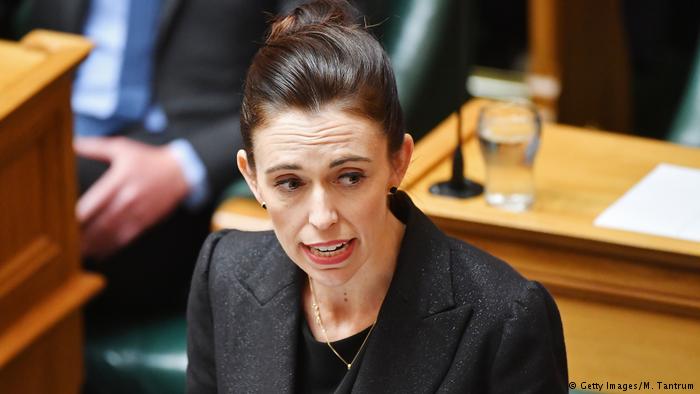New Zealand must come to terms with how hatred took root
Penultimate Friday’s terrorist attacks in Christchurch were a devastating and tragic assault on New Zealand ’s Muslim community and have shocked the nation to its core. The country’s geographic remoteness and relative lack of historical conflict had led to a collective sense of being shielded from that global hate-fuelled violence. New Zealand now must come […]

Penultimate Friday’s terrorist attacks in Christchurch were a devastating and tragic assault on New Zealand ’s Muslim community and have shocked the nation to its core.
The country’s geographic remoteness and relative lack of historical conflict had led to a collective sense of being shielded from that global hate-fuelled violence.
New Zealand now must come to terms with how such a tragedy could happen in a place that values ideals of multiculturalism, tolerance and social integration as critical and fundamental components of its collective national identity.
New Zealand is one of the most multicultural, diverse and tolerant countries in the world – more so than countries such as Australia, the United Kingdom, France, Germany and the Netherlands. Especially in the country’s many urban centres, people of different ethnic and religious backgrounds regularly interact peaceably, as friends, co-workers, and family.
This does not mean, however, that some groups in New Zealand do not face more difficulty than others.
Research that I conducted with my colleagues has shown that anti-Muslim prejudice in New Zealand, while lower than in other Western countries, is higher than prejudice against other minority groups.
Intolerance towards Muslims in New Zealand is all the more distressing because it is wholly unjustified. Muslims have lived peacefully in New Zealand for over 100 years and the community is incredibly diverse, consisting of people from places such as Fiji, Auckland, and Somalia.
It is also small, equating to about 1 per cent of the population. This diversity and size means that for many New Zealanders, knowledge of Muslims comes second-hand. Second-hand information is notoriously inaccurate. And these inaccuracies have been part of the problem.
Perhaps the largest source of second-hand information about Muslims in New Zealand is the news media. However, as recent research shows, even this trusted source of information is biased. It treats Islam as monolithic, focuses disproportionately on violence in the Arab world, tends to frame stories through “West vs Islam” framework.
Less than 10 per cent of media representations of Islam are about New Zealand’s Muslims. This misleading association of Islam with violence and the Middle East grossly misrepresents Muslim communities worldwide. (Violence by Muslims is exceedingly rare, and most Muslims are not of Arab descent.) It also perpetuates a perverse fantasy of Muslims as dangerous “others”.
On a nationwide scale, our research shows that these biased media representations are associated with negative attitudes towards Muslims.
Specifically, we have found that New Zealanders – across the political spectrum – who watch more news report higher anger and less warmth towards Muslims. Monolithic media messages, when further framed by radical right-wing distortions, are particularly dangerous.
What can be done? Public messaging is a start – and Prime Minister Jacinda Ardern has been leading from the front.
In a press conference, she declared to the nation, “they are us”, referring not just to the victims, but to all of New Zealand’s Muslims. She has asked the country to draw renewed attention to the cultivation of tolerance, multiculturalism and social cohesion. These ideals take constant effort and vigilance and must always be considered to be under threat.
One important place to start is by cultivating a sense of responsibility on the part of the media.
Media outlets want to sell newspapers and attract greater number of visitors to their websites, but they also must educate. In the hyper-competitive news environments of today, media corporations have been reluctant to accept responsibility for painting minority groups with quick, broad and homogenising brush strokes.
But make no mistake: this fuels hate – and this hate, at its worst, can motivate horrific acts of violence. More than this, hate affects mundane interactions between majority and minority groups. To fight hate, we must address its sources, and today, these sources include media representations.
There is another point to consider. Although many envision religion as a source of conflict, non-Muslim religious New Zealanders offer an important resource as the country moves forward.
When Muslims have been the targets of harassment and vandalism in the past, New Zealanders of other faiths have been quick to stand alongside Muslim communities and speak out against hate.
Our research has similarly shown that high levels of religious identification by non-Muslims are associated with increased feelings of warmth towards Muslims. Deeply-felt religious convictions in New Zealand, in other words, are associated with greater tolerance.
These communities can provide an important resource as the country grieves and draws renewed attention to its fundamental ideals and comes together as a country.
New Zealand is grieving as a nation. Part of that grieving must involve a collective shift from viewing any group as anything but “us”. It is the marginalisation of groups of people, not religion, nor ethnicity, nor immigration status that ought to be fought against.
John Shaver is Senior Lecturer in Religion and Head of the Religion Programme at the University of Otago, New Zealand.
(Culled from This Week in Asia)
